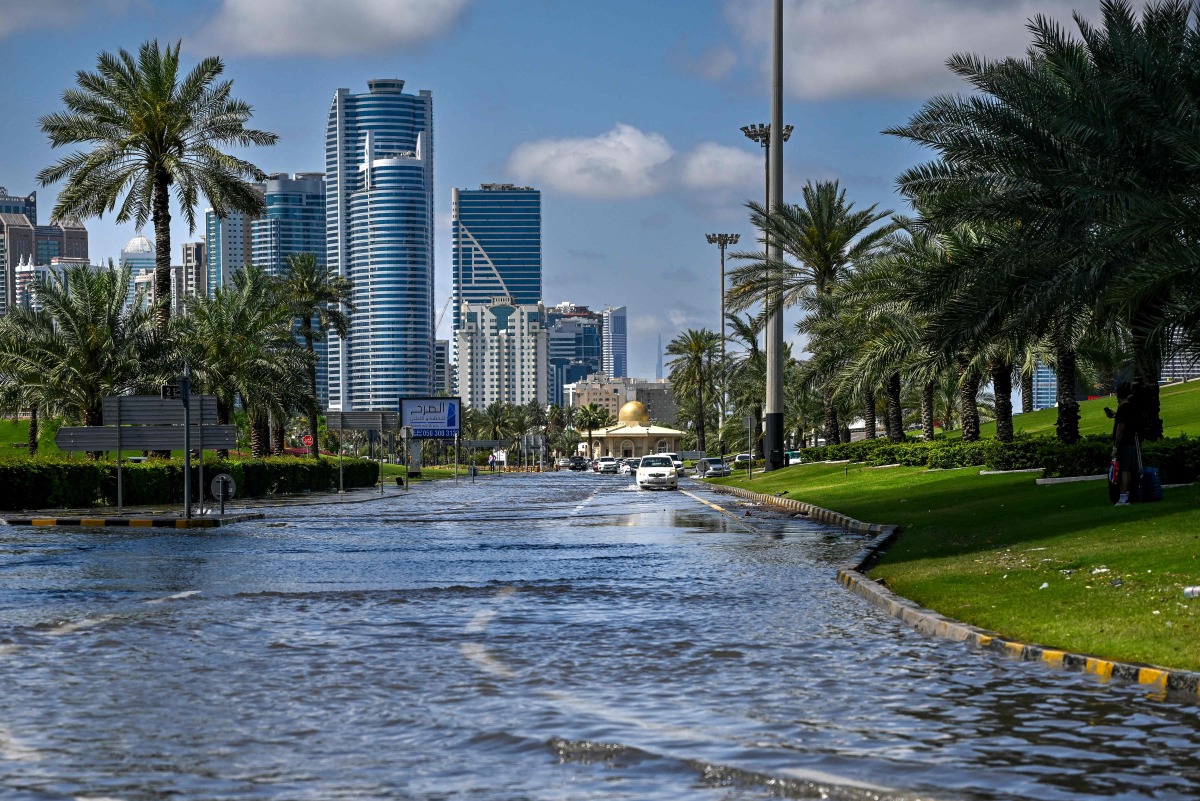Dubai and the surrounding region were hit with unprecedented heavy rains causing chaos and flooding on the streets. The record-breaking rains led to massive traffic jams on Dubai’s highways and major disruptions at the airport. The city was left gridlocked, with roads submerged under several meters of water and the airport struggling to function normally. Schools in Dubai were closed until further notice, and passengers were advised to avoid traveling through Dubai Airport unless absolutely necessary. The storms also affected neighboring countries like Oman and Bahrain, causing fatalities and widespread damage.
The heavy rains in Dubai resulted in at least one fatality, as a man was swept away in his car by floodwaters in Ras Al-Khaimah. The situation was further exacerbated by the flooding of a road tunnel near the airport, making it impossible for vehicles to pass through. The Emirates airline was forced to cancel all check-ins, leaving passengers stranded and frustrated. The effects of the storms were felt across the region, with Oman reporting numerous deaths and the UAE experiencing its highest rainfall on record since 1949.
Climate experts like climatologist Friederike Otto believe that global warming may have played a role in the severity of the storms. The extreme weather events, including the heavy rains and flooding, could be linked to climate change and its impact on the region. Despite the speculation, officials denied using cloud seeding to intensify the storms, stating that the natural weather conditions were already strong enough to cause the heavy rainfall. The desert terrain in the UAE was not able to absorb the excessive amount of water, leading to widespread flooding and chaos in the city.
As the cleanup efforts continue, authorities are working to restore normalcy in the region. Schools in Dubai and Bahrain will remain closed until the situation improves, and residents are urged to exercise caution during this time. The unprecedented rains have highlighted the vulnerability of the region to extreme weather events and the need for better infrastructure and disaster preparedness measures. The effects of global warming on the climate are becoming more evident, and it is crucial for governments and citizens to take action to mitigate its impact on their lives and livelihoods.









